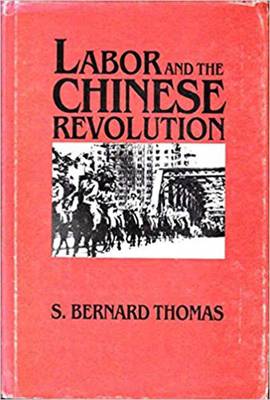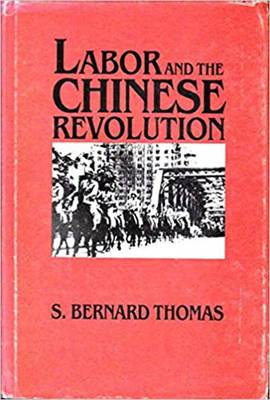
- Afhalen na 1 uur in een winkel met voorraad
- Gratis thuislevering in België vanaf € 30
- Ruim aanbod met 7 miljoen producten
- Afhalen na 1 uur in een winkel met voorraad
- Gratis thuislevering in België vanaf € 30
- Ruim aanbod met 7 miljoen producten
Zoeken
Labor and the Chinese Revolution
Class Strategies and Contradictions of Chinese Communism, 1928-1948 Volume 49
S Thomas, S Bernard Thomas
€ 62,45
+ 124 punten
Omschrijving
In the two-decade period from 1928 to 1948, the proletarian themes and issues underlying the Chinese Communist Party's ideological utterances were shrouded in rhetoric designed, perhaps, as much to disguise as to chart actual class strategies. Rhetoric notwithstanding, a careful analysis of such pronouncements is vitally important in following and evaluating the party's changing lines during this key revolutionary period. The function of the "proletariat" in the complex of policy issues and leadership struggles which developed under the precarious circumstances of those years had an importance out of all proportion to labor's relatively minor role in the post-1927 Communist led revolution. [1, 2]
Specificaties
Betrokkenen
- Auteur(s):
- Uitgeverij:
Inhoud
- Aantal bladzijden:
- 360
- Taal:
- Engels
- Reeks:
- Reeksnummer:
- nr. 49
Eigenschappen
- Productcode (EAN):
- 9780892640492
- Verschijningsdatum:
- 1/01/1983
- Uitvoering:
- Hardcover
- Formaat:
- Genaaid
- Afmetingen:
- 152 mm x 229 mm
- Gewicht:
- 793 g

Alleen bij Standaard Boekhandel
+ 124 punten op je klantenkaart van Standaard Boekhandel
Beoordelingen
We publiceren alleen reviews die voldoen aan de voorwaarden voor reviews. Bekijk onze voorwaarden voor reviews.







